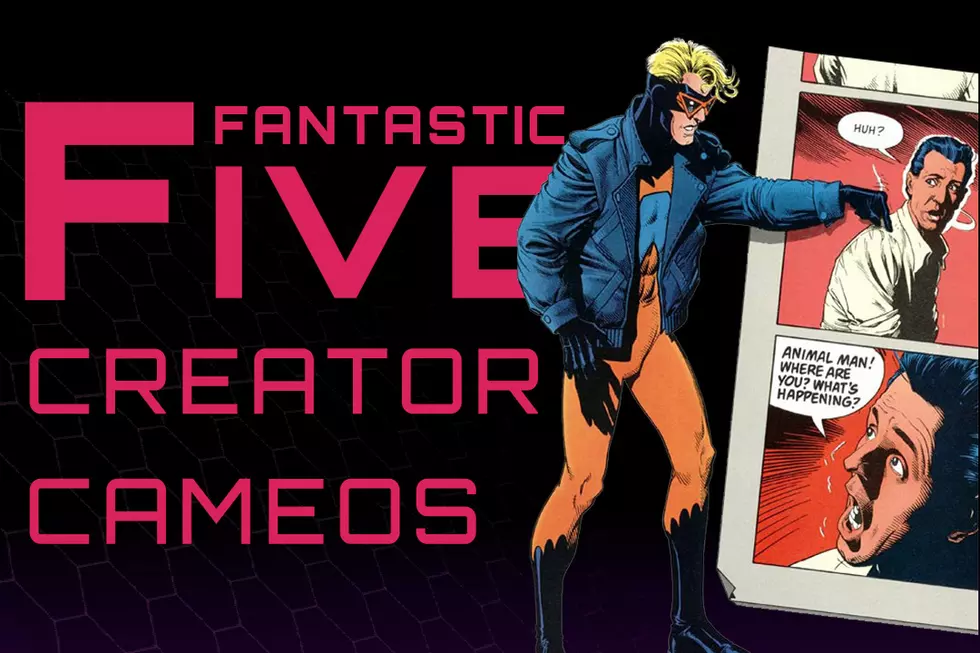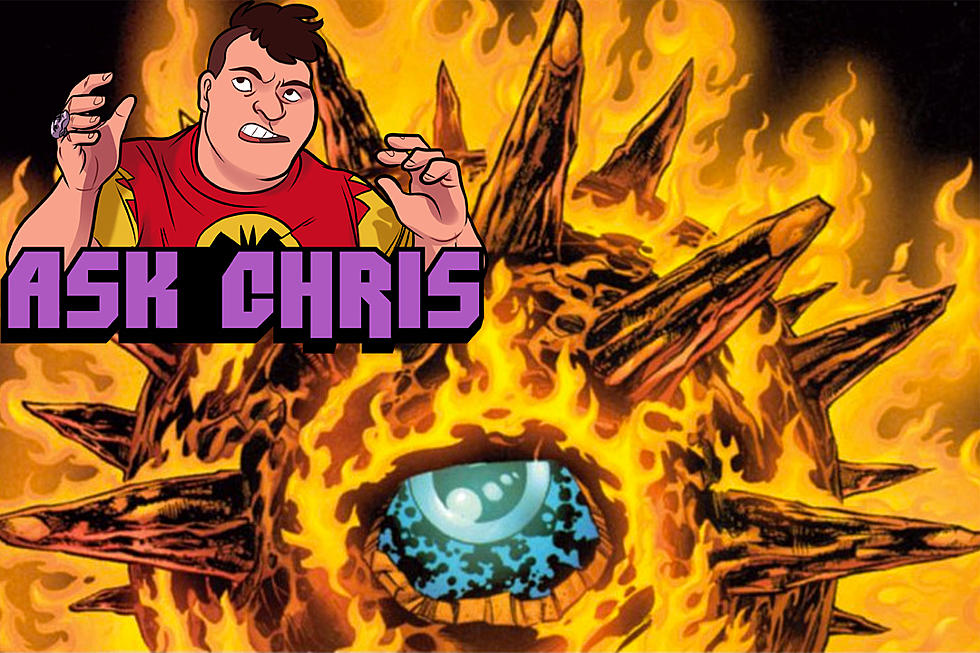
Stephen Bissette Calls For Marvel Boycott in Support of Jack Kirby’s Heirs

The late Jack Kirby's heirs were denied any share of the copyright to his Marvel Comics creations in federal court last week -- including Thor, the Fantastic Four, and the Hulk, the Avengers and the X-Men. A comics industry veteran best known for his groundbreaking work with Alan Moore on DC Comics' Saga of the Swamp Thing and as a champion of creators' rights, Stephen R. Bissette has called for comics readers and filmgoers to boycott all Marvel Entertainment products based on the 1960s creations of Kirby, the man behind many of that company's most enduring icons.
Bissette argues that regardless of whatever may or may not be legally justified, there remains a moral question that he believes can best be answered in the form of customer revolt.In a lengthy blog post, Bissette cited a boycott of Marvel Comics in the 1990s, undertaken in response to various publishing decisions including distributor exclusivity and variant covers, as an example of how "reader rebellion" can change the company's behavior. The artist believes similar action is called for in response to the recent court decision that denies Jack Kirby's heirs any share of the copyrights to the Marvel characters he created or co-created, which Bissette characterized as just one chapter of a long legacy of Marvel-related indignities suffered by the late Kirby. To that end, he put forth this plan of attack:
I suggest, for starters, simply pulling the plug on all individual support for any and all Kirby-derived Marvel ANYTHING (comics, movies, videogames, merchandizing).
[Tell your retailer] what you're doing, and spend what you would have spent on Kirby-derivedMarvel product on other product from other companies in their store.
If you're rightly concerned with continuing to support your local retailers, which I hope you are, let them know what you are doing and spend the same $$ you spent on Marvel product on other product, in the same store: it will continue to support your retailer, but send a clear message to Marvel in due time.
This goes for more than comic shops. One should also let the venue (comic shop, book shop, movie theater, Best Buy DVD display of superhero movies, etc.) KNOW what you're doing, and why.
I'm done with Marvel and all Marvel Kirby-derived product, period. No movies (I was planning to see Captain America this weekend; that's forever off the table), no more comics from their Kirby legacy, nothing.
Bissette hopes that if enough people join him, next year's Comic-Con International in San Diego will be a particularly unpleasant one for Marvel.
I put it to you, ladies and gentlemen, that San Diego Comicon 2012 should be the least comfortable event Marvel or any fleeting participant in any product, movie, videogame, or anything derived from Jack Kirby's Marvel legacy, should ever attend in the history of comicbook conventions-if you make sure it is.
It remains to be seen whether Bissette's call for a boycott will be answered. Reaction to last week's judgement in favor of Marvel was not met with the kind of emotional response one might expect given the stakes of the litigation. Many ComicsAlliance readers and those of other websites covering the story indicated they were dispassionate about the subject because Jack Kirby is no longer with us, negating a tangible "moral victory" for the influential artist through a boycott.
Others suggested that even though Marvel may owe Kirby far more than he ever received, his children aren't entitled to compensation for work he did. But Bissette's impassioned post is a compelling read, especially when he discusses having been relatively well taken care of by Marvel rival DC Comics in the form of royalties from the popular John Constantine character he co-created with Alan Moore. Bissette even received $45,000 once the character made the jump to the screen, an amount DC was likely not legally obliged to pay and an amount that Bissette claims is more than Kirby ever made from Marvel in his lifetime.
In any event, it is important and relieving that, at least for the moment, the general conversation about superhero comics has shifted from an entertaining but ultimately silly one in which these beloved characters are discussed as though they were real people or even transcendent, godlike figures to a more serious one about real-life human beings whose largely unrewarded, hand-made work continues to fuel multi-billion-dollar enterprises.
More From ComicsAlliance




![Super7 ReAnimates Alien and Predator, Masters More of the Universe [Toy Fair 2017]](http://townsquare.media/site/622/files/2017/02/IMG_2000.jpg?w=980&q=75)

![The Wild, Tear-Filled World of Heartbreak: The Best Romance Comic Covers Ever [Love & Sex Week]](http://townsquare.media/site/622/files/2017/02/featured1.png?w=980&q=75)


